Collection's History
Max Weber Documents: Donation and Collection
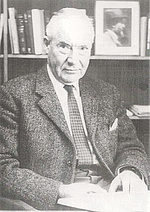
The idea for the project actually goes back to the year 1957. It was then when jurist Johannes Winckelmann (1900–1985) and constitutionalist Karl Loewenstein (1891–1973) met at Munich University.
Winckelmann had devoted his life as a private scholar to distributing the works of Max Weber. He became, after Weber’s wife Marianne, the second largest publisher of Weber’s works.
Marianne Weber gives Originals as Present
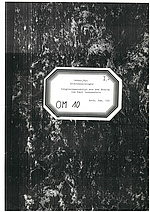
In contrast to Winckelmann Karl Loewenstein had known Max Weber personally. After his death Loewenstein supported Marianne Weber with the editions she had taken responsibility for. Loewenstein, the son of a jewish manufacturer in Munich, emigrated 1933 to the USA and taught there constitutional and public law from 1934 until 1961. In the new world Max Weber to him remained a point of reference.
In that Munich summer Loewenstein told Winckelmann that Marianne Weber had given him two original manuscripts of the so-called „Sociology of Law“. To Winckelmann this was a sensation, since on the one hand almost all of Max Weber’s original manuscripts remain lost, while on the other the „Sociology of Law “ is considered to be a part of „Economy and Society“ and therefore one of Weber’s most important works.
Founding the Max-Weber-Archive in Munich
Loewenstein decided, „that such precious possession was to pass into ... the property of the country where Max Weber lived and worked last“ and he was holding out the prospect of a donation, as soon as there was an „institution for research and collection carrying Max Weber’s name in Munich“. The manuscript was also to be made available to research.
In November 1960 Winckelmann founded in Munich the Max Weber Archive, meeting both requirements with this institution. The archive formally was part of the Institute of Sociology. A complete Max Weber edition became Winckelmann’s declared goal. Hans Maier, then Minister of Education and Cultural Affairs, Academy President Hans Raupach und Karl Bosl, then chairman of the Commission for Social and Economic History recognized the Max Weber’s importance for Munich as science location, promoting vehemently a academy solution.
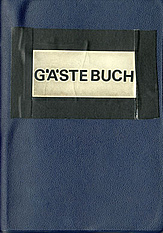
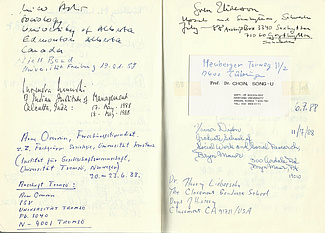
Bavarian Academy of Sciences and Humanities Takes on Sponsorship
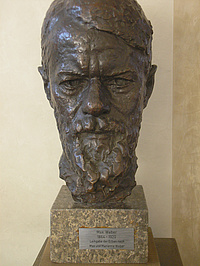
In 1974 the Commission for Social and Economic History agreed to take on the sponsorship for a Max Weber Complete Edition and to provide the required premises. In the same year the documents and books belonging to the Max Weber Gesellschaft, among them a valuable collection of the first Japanese translations of Weber’s works, were transfered to the Academy.
A year later the Ministry of Education and Cultural Affairs transferred human and material resources of the by now resolved Max Weber Institute as well as its collections to the Academy. Winckelmann’s documentarium and specialized library became the base of the Max Weber-Gesamtausgabe MWG editorial work. Winckelmann himself became scientific advisor of the Munich office and one of five editors of the Max Weber-Gesamtausgabe.
Literature: Anne Munding, Die Institutionalisierung einer Leidenschaft, in: Akademie Aktuell 1/2014, S. 55–57.
